Our teams around the globe continue to deliver Humanitarian Operations Programme (HOP) training sessions. The Eastern Europe Regional Centre closed the summer season with a successful HOP face-to-face training in Krakow, Poland, featuring a cohort of 20 participants from diverse backgrounds.
This session was delivered by facilitators trained by the HLA earlier this year through the HOP Training of Trainers (ToT) programme in line with our localisation goals.
The training programme covers essential topics such as wellbeing in emergencies, rapid needs assessments, proposal writing, conflict sensitivity programming, and safeguarding in emergencies, delivered through interactive face-to-face workshops and desk-based scenario.
Proven to be useful for humanitarians in different responses, the HOP training is valued by participants, who appreciate this learning experience for well-structured theoretical knowledge vital to humanitarian actors as well as the opportunity to practice newly gained skills in controlled challenging situations:
« The proposed scenario was similar to real life in all its aspects: unpredictability, competition, cooperation, common goals, risks of duplication and aspects of the personality of the members of each team. It allowed me to use my skills in a new field. It was a real challenge, and I enjoyed every moment despite the difficulty it showed at times. »
« The theoretical slides are clear and organised. The simulation component is very engaging and realistic, lots of reflections, insights and meaningful discussion took place. »
« I really enjoyed working with my group, everyone was really engaged and committed. »
« Key learnings: time management, teamwork, and effective communication. Key challenges: Dealing with a lot of new information and different layers of complexity, such as the humanitarian standards and protocols, how to assess and prioritise needs. »
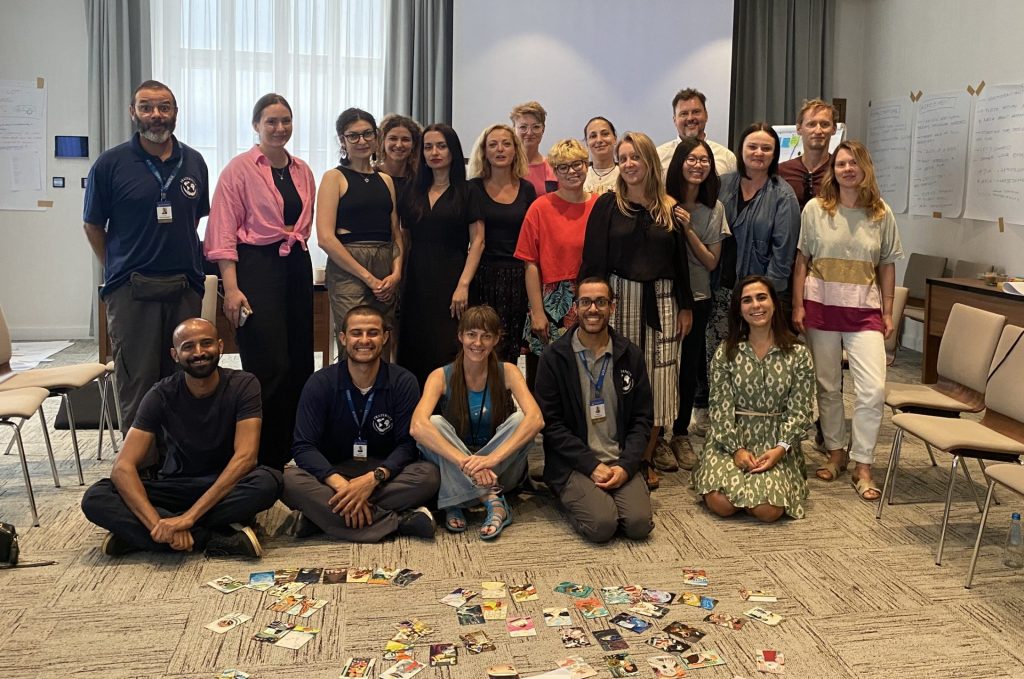
HOP training is essential for the Ukraine response, as it gives a solid base for decision-making in locally-led initiatives, making interventions well thought out and preventing any harm that can be done unintentionally. To get an insightful experience and fresh perspective on this programme, our Learning Solutions Coordinator in Ukraine, Anastasiia, travelled to Krakow to take part in the training.
Anastasiia Korobchuk, HLA Learning Solutions Coordinator in Ukraine:
“As in many other responses, people in the region rushed into action immediately without any preparation. HOP is an example of a perfect balance between theory and practice, which focuses on the essentials but gives you a real taste of the challenges faced by humanitarians all over the world.
The real magic happened in Krakow when people from four different countries and various backgrounds gathered in one room and turned a theoretical part of the learning programme into a passionate discussion panel.
The desk-based scenario was the most challenging part of the training, which made drops of sweat roll down the foreheads of participants. It suggests responding to an imaginary crisis, but for us it was a real problem we had to deal with our best efforts. Despite ‘mistakes’ in our projects, coordination between teams was amazing – I wish we could bring this level of synergy into real life!”
Representatives of Save the Children International Country Offices in Poland and Ukraine and HLA Eastern Europe Regional Centre attending the HOP Training.
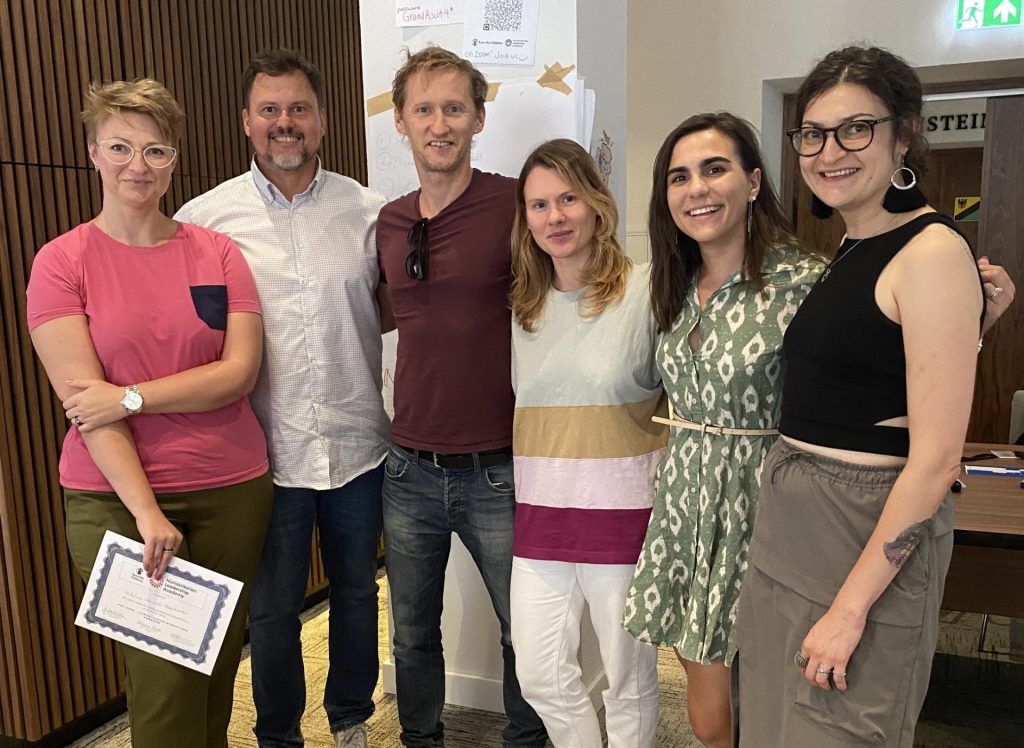
This time, we also welcomed our Save the Children colleagues from Poland and Ukraine Country Offices. While agreeing on the desk-based scenario being the most challenging part of the HOP training, Kateryna Zalievska, Partnership Coordinator at the Save the Children International Central Area Office in Ukraine, highlighted the importance of the opportunity to communicate and network with experienced colleagues.
Kateryna Zalievska, Partnership Coordinator at Save the Children Ukraine:
“It was important for me to attend the HOP training because this is my first experience working in an international organisation as well as working in humanitarian response. I felt the need to arrange all the theoretical and practical knowledge I have gained in Save the Children International. HOP training helped me to classify and arrange my experience to get a better understanding of how the humanitarian sector works in general and different actors in particular. Another important thing was to get the insights on how to work in a multicultural environment.”
Participants from the Save the Children International Country Office in Poland emphasised the value of seeing a wider perspective and exchanging experiences in humanitarian aid with colleagues from different countries, backgrounds, and experiences in various contexts. In addition to the theoretical and practical knowledge provided by the programme, it was invaluable to share and discuss contrasting points of view, and the cultural and work differences.
Bartosz Domanski, Child Protection and MHPSS Coordinator at Save the Children Poland:
“The training was a vast experience and one of the most demanding training courses I have attended. I believe that it should be obligatory for every Save the Children employee. It allows you to expand the skills of planning activities and budgeting and broadens the perspective of people working in various SCI departments.
One of the hardest things about the training was writing proposals for donors with limited time and changing narration. It was an immensely helpful lesson.”
Michalina Wieczorek-Rzeszowska, Child Protection Case Management Coordinator at Save the Children Poland:
“From my perspective, it was important to meet experienced humanitarian workers and learn their perspective on planning a response to a crisis. This allowed me to see what their priorities were and how this could be used in future cooperation
When responding to a crisis, everyone wants to act according to their own rules and set priorities. Thanks to the exercise we did over the last 3 days, I saw how important it is to divide and clearly define responsibilities and communicate with other actors present on the ground.”
Each HOP training is thoughtfully tailored for the respective response by our experienced learning solutions specialists. We aspire to make it more available by training local facilitators, so HOP can be delivered region-wide and in local languages.
Learn more about the Humanitarian Operations Programme
Humanitarian Operations Programme – Humanitarian Leadership Academy
Related News
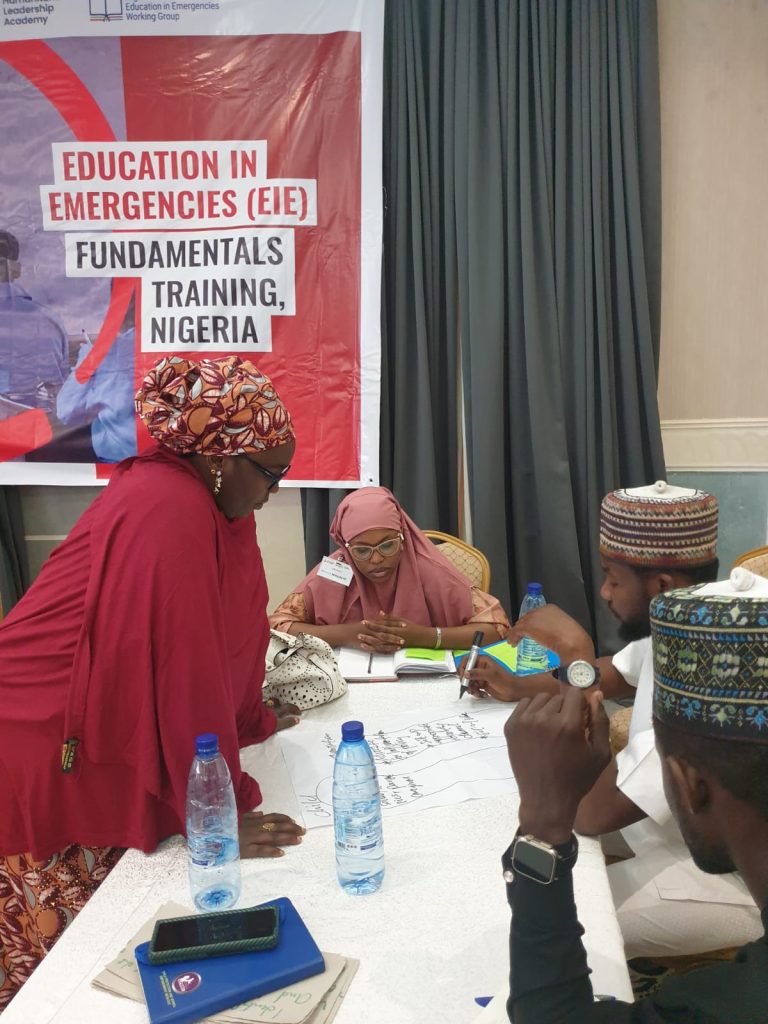
A first for the WCA team: delivering EiE Fundamentals training in Nigeria
3rd avril 2024
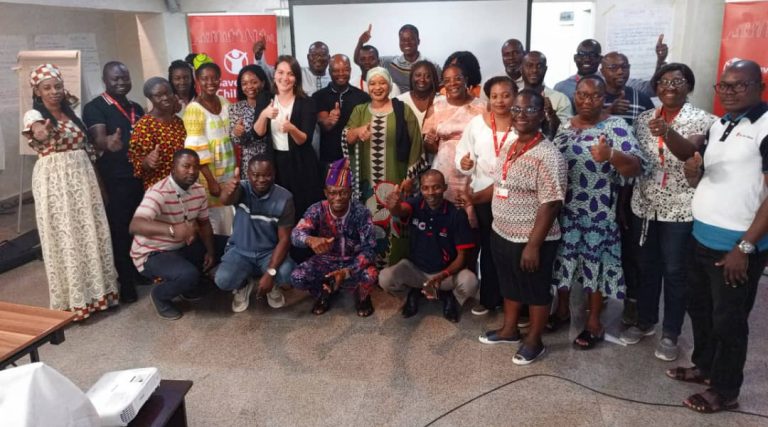
Education in emergencies & development aid: Working in partnership to deliver localised training
3rd avril 2024
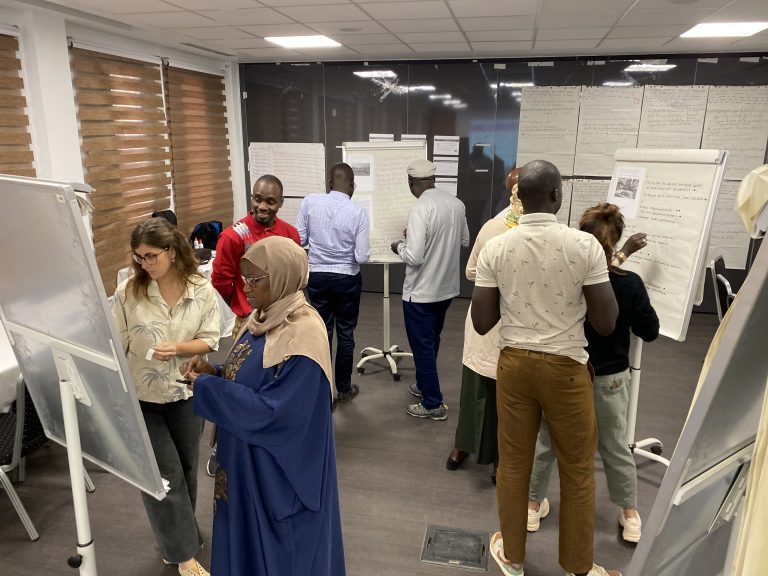
Strengthening capacity across West and Central Africa: Humanitarian Operations Programme Core in Dakar, Senegal
3rd avril 2024